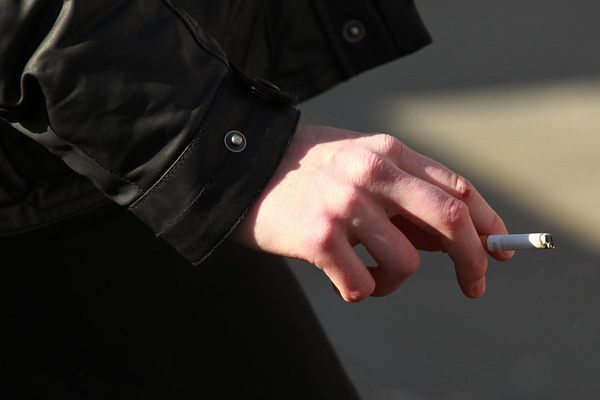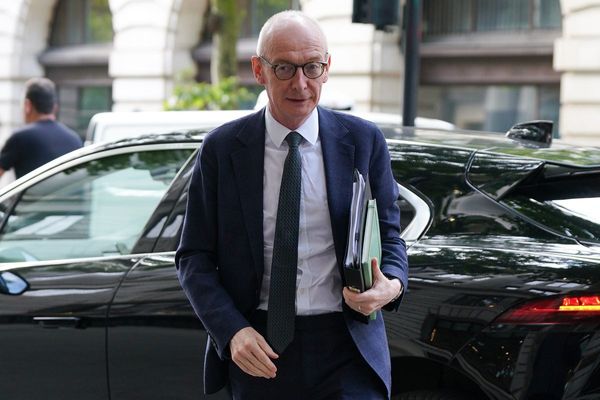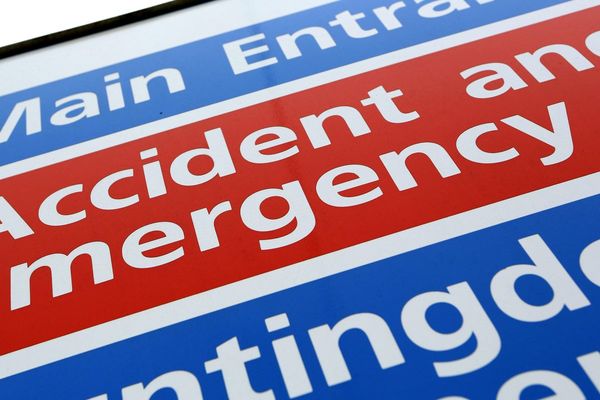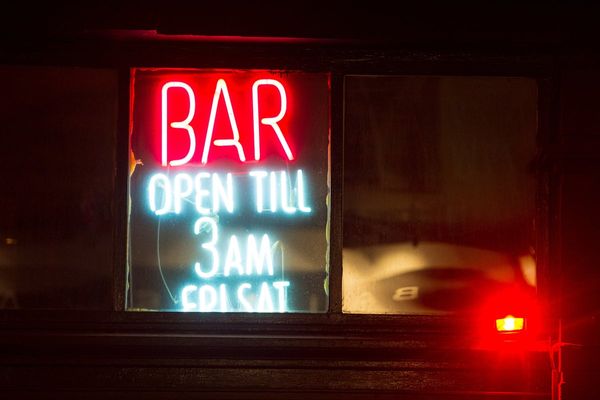A dad who suffered cardiac arrest after wating nine hours for an ambulance has urged others to get a taxi - rather than suffer waiting times during the NHS crisis. Darrel Wilson, 54, called an ambulance at 10:20 pm on October 8 after experiencing chest pains at home - which didn't arrive until 07:46am the next morning.
By the time paramedics were finally at his front door, Debbie Wilson, 57, Darrel's wife had been forced to drive him herself 81 minutes earlier. Darrel arrived at hospital in extreme pain, and suffered cardiac arrest shortly after - which he believes wouldn't have happened had the ambulance arrived on time.
Now he says he's lost complete faith in the system, and would urge others who fear for their lives to 'get a taxi' rather than risk the current paramedic waiting times. Darrel said: "The phone operator just kept telling us, the next ambulance in the area will be coming to you - but it never did.
"We called 999 eight times, and kept being asked the same questions. In the end Debbie drove me, and if she hadn't of done, I wouldn't be here right now."
Darrel was at home on October 8 when he started experiencing severe chest pain. Debbie dialled 999 at 10:20pm and spoke with a phone operator who took down Darrel's details and his symptoms.
After speaking with Darrel, the operator informed the couple that an ambulance would be there 'as soon as possible' - but eight hours later, one still hadn't arrived. Instead, the father of four spent the night lying on the floor while Debbie made eight separate calls to the emergency services, frantically trying to hurry things up.
Debbie, a sales administrator, said: "At first when we spoke with someone, we felt confident we were in good hands. They took all the details off me, his symptoms, my address, and asked ‘Is he conscious? Is he breathing?’.
"At the time he was, and they asked ‘What’s the ratio of pain between one and 10?’ He said ‘20’. They said, ‘We’ll have an ambulance to you as soon as we can'. But the ambulance never showed, and in the end Darrel's pain was too much to bear."
Debbie made the decision to drive Darrel to Royal Stoke University Hospital herself at 6am the next morning. That was after a gruelling night waiting for the ambulance, which did eventually arrive nearly two hours after she left.
On arrival, Debbie abandoned her car in the hospital car park, and Darrell was taken into triage where he suffered cardiac arrest ten minutes later. Thankfully, because he was surround by doctors, he was successfully resuscitated after 11 defibrillator compressions.
Darrel then underwent emergency surgery where he had two stints put in to his heart, and was released from hospital five days later. He has been recovering well since that fateful night, but says nothing could restore his confidence in what he feels is a broken system.
Darrel, a JCB worker, said: “The nurses have said that if I had waited any longer for the ambulance, I wouldn’t have a stent and I wouldn't be alive. We just kept hanging on, and every time we rang, we had to answer the same questions every time. They don’t tell you how long it’ll be.
“I was in that much pain that I was on the floor most of the time. thought it was the end of my life -the pain was just horrendous.
“I just want to tell other people so it doesn't happen to them. If it happened to me again, I wouldn’t wait for an ambulance, no way - I’d go straight away and get a taxi.”
A spokesperson for West Midlands Ambulance Service said: "We would like to apologise to Mr Wilson and his family for the delayed response. The ambulance service relies on each part of the health and social care system working together so that our ambulances can get to patients in the community quickly.
"Sadly, the pressures we are seeing in health and social care lead to long hospital handover delays with our crews left caring for patients that need admitting to hospital rather than responding to the next call.
"The result is that our crews are delayed reaching patients.
“We are working incredibly hard with all of our NHS and social care partners to prevent these delays, looking at new ways to safely hand over patients quickly so that our crews can respond more rapidly and save more lives.”







